6.2/10
Entertaining as a bizarre Aussie comedy-horror
 Posted : 5 years, 8 months ago on 15 September 2019 01:47
(A review of The Howling III)
Posted : 5 years, 8 months ago on 15 September 2019 01:47
(A review of The Howling III) 0 comments, Reply to this entry
0 comments, Reply to this entry
An involving, at times horrifying animated classic
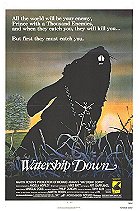 Posted : 5 years, 9 months ago on 1 September 2019 10:00
(A review of Watership Down)
Posted : 5 years, 9 months ago on 1 September 2019 10:00
(A review of Watership Down)8.2/10
 0 comments, Reply to this entry
0 comments, Reply to this entry
An undeniable classic of Australian cinema
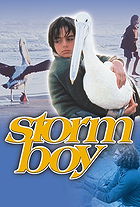 Posted : 5 years, 9 months ago on 29 August 2019 06:08
(A review of Storm Boy (1976))
Posted : 5 years, 9 months ago on 29 August 2019 06:08
(A review of Storm Boy (1976))7.1/10
 0 comments, Reply to this entry
0 comments, Reply to this entry
A sincere and mostly effective romantic drama
 Posted : 5 years, 9 months ago on 28 August 2019 07:10
(A review of Five Feet Apart)
Posted : 5 years, 9 months ago on 28 August 2019 07:10
(A review of Five Feet Apart)6.6/10
 0 comments, Reply to this entry
0 comments, Reply to this entry
A poignant and deeply resonant remake
 Posted : 5 years, 11 months ago on 4 July 2019 03:47
(A review of A Star Is Born)
Posted : 5 years, 11 months ago on 4 July 2019 03:47
(A review of A Star Is Born)8.9/10
 0 comments, Reply to this entry
0 comments, Reply to this entry
A watchable horror movie, despite its flaws
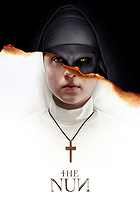 Posted : 5 years, 12 months ago on 4 June 2019 07:47
(A review of The Nun)
Posted : 5 years, 12 months ago on 4 June 2019 07:47
(A review of The Nun)6.3/10
 0 comments, Reply to this entry
0 comments, Reply to this entry
A total masterpiece, and a new manly classic
 Posted : 6 years, 2 months ago on 31 March 2019 04:47
(A review of Dragged Across Concrete)
Posted : 6 years, 2 months ago on 31 March 2019 04:47
(A review of Dragged Across Concrete)The third feature film from writer-director S. Craig Zahler, 2018's Dragged Across Concrete is a new manly classic for the ages, further verifying the filmmaker's immense talents behind the camera. Zahler happily preserves the distinct filmmaking idiosyncrasies glimpsed in both Bone Tomahawk and Brawl in Cell Block 99, with Dragged Across Concrete another mesmerising exercise in engrossing character interaction and drama, punctuated by moments of extreme, wince-inducing ultraviolence. It's a slow-burn, but it never feels cumbersome or unnecessarily overextended, as Zahler keeps the movie on a tight leash, delivering superb submersion into this neo-noir world brimming with hard-boiled dialogue. Dragged Across Concrete is a tough sell for more sensitive viewers due to its decidedly un-PC dialogue, the graphic violence, the prolonged 158-minute runtime, and the lack of any prototypical good guys. It's not for everyone, but those who enjoy this type of masculine entertainment will consider Dragged Across Concrete an absolute godsend.
A veteran street cop, Brett Ridgeman (Mel Gibson) has grown bitter with the world, with a poor salary forcing him to live in a bad neighbourhood with his MS-stricken wife Melanie (Laurie Holden) who's unable to work, as well as his teenage daughter Sara (Jordyn Ashley Olson) who is often assaulted whilst walking home from school. Brett's younger partner Anthony (Vince Vaughn) also dreams of a more stable financial future, planning to propose to girlfriend Denise (Tattiawna Jones). When Brett and Anthony are caught on camera roughing up a Mexican drug dealer during a bust, Lt. Calvert (Don Johnson) places the two men on suspension for six weeks without pay, a tough break that neither of them can afford. Seeking to sort out his financial situation for good, Brett enlists Anthony's help to track the movements of career criminal Lorentz Vogelman (Thomas Kretschmann), who is planning a heist to steal gold bullion. Vogelman's team includes a wheelman in Henry (Tory Kittles), who returns to criminal activities after his release from prison to provide for both his destitute mother and disabled brother.
There is much to unpack in terms of narrative, with Dragged Across Concrete switching focus between the parallel storylines throughout, but Brett and Anthony receive the lion's share of screen-time, with their suspension the impetus which leads to the story's final destination. As demonstrated in his previous efforts as writer and director, Zahler's dialogue is uniquely poetic and exhibits unending wit, whilst simultaneously feeling organic and unforced. In particular, the bantering between Brett and Anthony is a perpetual source of joy and amusement, sparkling like an early Quentin Tarantino screenplay. A bulk of Dragged Across Concrete's second act involves Brett and Anthony performing surveillance in cars, replete with idiosyncratic banter. The runtime also allows the movie to spend time with Kelly (Jennifer Carpenter), a new mother on extended maternity leave who is reluctant to return to work at a local bank. Although the side plot may seem superfluous at first glance, it generates almost unbearable tension during the subsequent robbery, adding humanity to a brutally violent showdown.
Zahler keeps Dragged Across Concrete welcomely free of political grandstanding and virtue signalling, though the movie does have things on its mind regarding the state of the world in 2019. Brett and Anthony get results, but their methods are considered too barbaric in the 21st century, with the omnipresent threat of digital eyes putting them under unwelcome scrutiny. Brett is expressly bitter about the modern world, refusing to adhere to increasingly strict standards of political correctness, which is why he is still a street cop after three decades on the force. Nevertheless, this material merely serves as subtext to colour the story and the characters; Dragged Across Concrete is an apolitical movie featuring humans who realistically interact and have opinions, with Zahler choosing not to dilute sometimes harsh reality for mass consumption. Furthermore, much like Brawl in Cell Block 99, the main characters here are anti-heroes for all intents and purposes, but they also have a moral compass, and themes of morality do permeate the movie.
Shot by Zahler's loyal director of photography Benji Bakshi, who favours sturdy tripod shots as opposed to incomprehensible handheld cinematography, Dragged Across Concrete unfolds at a deliberate yet enthralling pace, with editor Greg D'Auria (another regular Zahler collaborator) permitting the action to unfold in prolonged full shots. Indeed, there is no shaky-cam or rapid-fire editing here, nor is there any overt computer-generated imagery to mar the sense of realism or authenticity, with the director achieving a practical aesthetic. Relying on old-school blood squibs and practical special effects, Zahler aims for the old-fashioned cinematic sensibilities of '70s exploitation cinema, on top of evoking the period's mean, unrelenting mood (think Martin Scorsese). Although set-pieces are scarce, the action beats are outstanding when Zahler cuts loose. Additionally, the soundtrack was one of the most notable aspects of Brawl in Cell Block 99, and thankfully Dragged Across Concrete similarly delivers, with a killer selection of catchy songs and a memorably moody original score. Zahler makes the most of the modest $15 million budget, polishing the film to perfection, making the end result look as if it was made for a considerably higher amount.
Dragged Across Concrete boasts Zahler's most impressive ensemble cast to date, featuring a number of familiar faces. In addition to Gibson and Vaughn, the supporting cast boasts the likes of Michael Jai White, Laurie Holden, Thomas Kretschmann, Jennifer Carpenter, and more. Brawl in Cell Block 99 alumni (and excellent actors in their own right) Don Johnson and Udo Kier also appear in a single scene each, adding to the production's colour and flavour. The pairing of Gibson and Vaughn is superb, and the thespians submit some of their finest work to date here - Gibson nails the grizzled, tough-as-nails veteran cop, while Vaughn again shows off his fine dramatic chops, reminiscent of his equally top-notch work in Hacksaw Ridge. Kittles, meanwhile, has bounced around the sidelines of films and TV shows for years, featuring in the likes of True Detective, Olympus Has Fallen, The Sapphires and Sons of Anarchy. Although not as well-known or as recognisable as his co-stars, Kittles exudes enough gravitas and talent to convincingly play Henry, who has an unexpectedly large role to play in the proceedings. Suffice it to say, the rest of the performers are equally sublime, with White most notable playing Henry's childhood friend Biscuit.
Let's not mince words here: Dragged Across Concrete is a full-blown masterpiece. It's a mean, stylish, enthralling and often hilarious crime-thriller, brought to life by the most talented new directorial wunderkind currently working in the industry, and performed by a superb cast. Zahler is a rare type of filmmaker who hopes that his movies are enjoyed, but refuses to sell out by making creative choices to broaden audience appeal. Additionally, Zahler displays no sentimentality towards any of his characters, meaning that no matter how familiar the actor, they can be killed off at any time. As a result, it is genuinely difficult to take your eyes off the screen, and Dragged Across Concrete is relentlessly heart-stopping and gripping despite its intimidating running time. Added to this, it confidently stands up to repeat viewings.
10/10
 1 comments, Reply to this entry
1 comments, Reply to this entry
A wholly compelling and affecting sequel
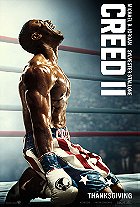 Posted : 6 years, 2 months ago on 16 March 2019 02:52
(A review of Creed II)
Posted : 6 years, 2 months ago on 16 March 2019 02:52
(A review of Creed II)An ostensibly shaky proposition, 2015's Creed eclipsed expectations to earn significant acclaim and solid box office, propelling director Ryan Coogler into the spotlight. Creed II sees Coogler assuming a diminished executive producer role, with newcomer Steven Caple Jr. (2016's The Land) stepping in to helm this inevitable follow-up, working from a script by Sylvester Stallone and Juel Taylor (his first screenplay credit). Essentially functioning as a sequel to 1985's Rocky IV, Creed II's narrative admittedly amounts to a "greatest hits" compilation, but the execution is miraculous - this is an outstanding, highly involving boxing drama peppered with top-notch fight sequences. Moreover, Creed II is all about fathers and sons, with connections to Rocky IV serving a legitimate thematic purpose when the story could have been a surface-level cartoon. Indeed, the film's most significant achievement is accomplishing something wholly compelling despite building upon the unabashed lunacy and cartoonishness of Rocky IV.
9.1/10
 0 comments, Reply to this entry
0 comments, Reply to this entry
A mediocre threequel, though not without merit
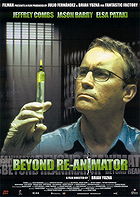 Posted : 6 years, 2 months ago on 9 March 2019 04:04
(A review of Beyond Re-Animator)
Posted : 6 years, 2 months ago on 9 March 2019 04:04
(A review of Beyond Re-Animator)Whereas the first two Re-Animator movies were loosely adapted from H.P. Lovecraft's serialised Herbert West stories, Beyond Re-Animator is entirely original, with Lovecraft no longer mentioned in the credits. The twist to this third Re-Animator is that West discovers a potential way to bring people back to life properly, restoring the souls of the dead, as opposed to simply turning them into mindless zombies prone to degeneration. It's the next logical step in the series, and it is refreshing that the screenplay credited to José Manuel Gómez (from a story by The Lion King and Revenge of the Nerds scribe Miguel Tejada-Flores) exhibits some sense of invention. Nevertheless, perhaps unsurprisingly, the narrative's broad strokes remain similar to the previous Re-Animator flicks, and Beyond Re-Animator will not exactly win awards for dialogue. Additionally, although West prominently features in the first two pictures, he was never the protagonist; he was more of a scenery-chewing side character. Beyond Re-Animator, on the other hand, graduates West to protagonist, and that's an issue since he never grows or develops over the course of the film. Phillips represents Cain's replacement, but he's simply not substantial enough as a potential protagonist, with the material only permitting him a trite romantic subplot with Laura.
Unsurprisingly, Combs is the movie's secret weapon. Despite the production's other shortcomings, Combs gives it his all as Dr. West, playing things totally straight and delivering his dialogue with utmost conviction. For the third time here, Combs turns what is essentially a mad scientist caricature into a believable and endearing character. As West's protégée for this go-round, Barry (who played Tommy Ryan in Titanic) is fine - he's believable enough and brings requisite intensity to the finale. While Combs is American and Barry is Irish, the rest of the actors are Spanish. However, it's not always obvious, as the characters speak English with convincing accents. Admittedly, some of the performers are visibly dubbed, but the likes of Pataky and Andreu are noticeably permitted their own voices, and they're perfectly adequate as their respective characters.
5.4/10
 0 comments, Reply to this entry
0 comments, Reply to this entry
A fun enough sequel let down by slapdash writing
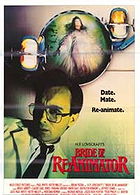 Posted : 6 years, 2 months ago on 9 March 2019 03:33
(A review of Bride of Re-Animator)
Posted : 6 years, 2 months ago on 9 March 2019 03:33
(A review of Bride of Re-Animator)6.3/10
 0 comments, Reply to this entry
0 comments, Reply to this entry
 Login
Login
 Home
Home 183 Lists
183 Lists 1668 Reviews
1668 Reviews Collections
Collections
























